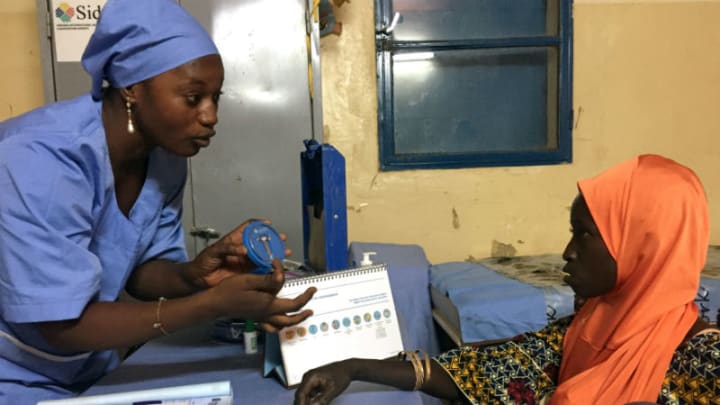It’s no surprise that International Condom Day coincides with Valentine’s Day. What other day of the year overtly promotes love and sex? Here in the United States, we are fortunate to have ready access to family planning information, condoms to both prevent unwanted pregnancies and prevent STDs and HIV, and all of the other forms of contraceptives now available.

It’s every woman’s right to choose when and if to have children. A world where every child is wanted is the goal of Family Planning 2020 — to give 120 million additional women and girls both the right and the means to use modern contraceptives. But what about war-torn countries such as Syria, Iraq, Sudan, Yemen, and Somalia — countries where political instability, social and economic upheaval, religious constraints, and large refugee populations significantly set back public health initiatives including family planning?
Conservationists and reproductive health actors may seem unlikely partners, yet two organizations have teamed up to publish a policy paper advocating for joint work on cheetah conservation and family planning.
Often, in times of conflict, the right or ability to access family planning is one of the first things women lose. Clinics close, doctors move on, and despite such challenges, nonprofits and NGOs must step in to fill a growing unmet need, becoming critical providers of condoms and other contraception as well as training for sexual health care providers. Family planning organizations are at the forefront of what a battle to ensure women and girls have these opportunities.
It’s not just about delivering contraceptive products to men and women at a price everyone can afford. Family planning organizations must also find creative ways to train providers and midwives to ensure contraceptive availability; to avert unintended pregnancies, unsafe abortions, and maternal and child mortality; and to help ensure that contraceptive supplies are delivered safely and timely to remaining gynecologists and pharmacies.
Here are a few examples of what’s being done by nonprofit family planning providers today and the kind of creative thinking we need a great deal more of.
In Egypt, mosques often serve as more than centers of faith. On some days, the El-Hosary Mosque in Cairo serves also as a family planning training center where physicians attend an intrauterine device, or IUD, insertion training session. Once trained, physicians can provide family planning services to the many women who cannot afford a trip to a regular clinic.
Get development's most important headlines in your inbox every day.
Also in Egypt, a social media campaign reaches out to poor and hard-to-reach and less educated women with messages about contraception. And youth-friendly radio, television, and social media advertisements reach young people who might otherwise not have access to sexual health information. Because only about 7 percent of Egyptian women are familiar with emergency contraception, a bilingual website has been established in tandem with a social media campaign called “Be Sure, Be Confident” to inform women of their options.
In Somalia, a country that suffered civil war for decades and is still fragile, 34 Somali health care providers in Punt Land received training manuals on counseling techniques and reproductive health information customized and provided by a nonprofit to meet the specific needs of Somali practitioners.
In Syria, with approximately 3 million women of reproductive age in the midst of that nation’s crisis, and an additional 1 million female refugees of reproductive age in neighboring countries, 25,000 IUDs were supplied to Syrian women in the past year. The nonprofit also provided support, education, and training to ensure contraception becomes a strong tool for determining a better future for themselves and their families.













0 Comments